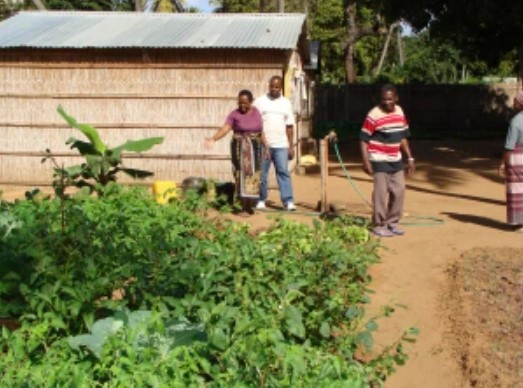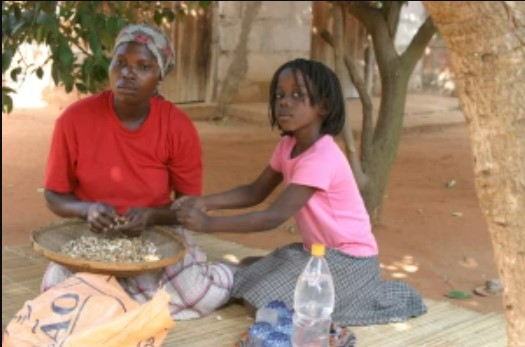One of the most important things we did as the Central Conference Pension Initiative (CCPI) efforts began in 2003 was to start visiting the central conferences to meet the retirees—see what their daily lives were like; how they lived; and what it might take to help provide a level of support in retirement for them.

On my first trip, we arrived in Mozambique in southeastern Africa, below the equator on the Indian Ocean. We were driven to a local community of small, cement-block houses. The minister and his wife warmly welcomed us in front of their son’s two-room home, which they shared with him and his family—foundation set directly on the ground with a garden against the house, hacked out of a little piece of earth. They brought out plastic chairs and set them in front of the house in the dirt, and the retired minister and his wife shared experiences openly and willingly. Through interpreters, we began to understand what their service entailed; the number of villages and lives they touched; the countless miles they walked or bicycled; what little they had; and how great were their gifts of time and effort.
As we talked, we came to understand that the minister had served and lived in northern Mozambique—a very wild, undeveloped area without much infrastructure and almost no roads. He talked about going to one village in particular, where the villagers had never heard the Word of God or been taught about Christ. The couple went and lived among them in little dirt houses, and they carried out their ministry there for years.
In our visits, I found that a minister’s wife normally sat silently by, nodding and smiling as we talked about the minister, his ministry, how he had served, and what his career had been like. I realized that, as we usually do, we were focusing on the man that had provided the spiritual leadership, and I thought, “I’ll bet there’s another side of the story.” Then, I turned to his wife and asked her directly, “So, what did you do while he was doing his work?”

She brightened up and said, “Well, when I got there, I saw many people kept some sheep and they knew how to weave, but only big bolts of cloth. So, the women either wore a bolt of cloth wrapped around them that did not fit well or they went bare-chested.
“They didn’t have shirts or tops or blouses because they didn’t know how to sew—they didn’t have any kind of sewing machines—but they could weave the sheep’s wool.” She continued, “I came to realize that being uncovered and having to remain bare-chested actually affected their sense of dignity. So, through my connections, I taught them how to sew and how to shape these woven cloths into tops and blouses. We cut out the arm holes and the sleeves and sewed them together.” And she said with great satisfaction, “I actually was able to help clothe the women of the village and I couldn’t believe how much that helped their sense of dignity.”
What a remarkable story, and what a difference this woman made. I thought, rather than focus just on the person in ministry, we should recognize the actual shared ministry. The work of the spouse may not be the focus of attention, but they are there, carrying out their own ministry of service, helping people in countless ways and making significant contributions in their ministerial partnership.
Not long after I returned to the States, we learned that the minister we visited had passed away. When I think of the CCPI and the words we often use—caring for those who serve by providing pension payments in retirement for ministers and their surviving spouses—I think of the minister and his wife and what she brought to his ministry. She taught; she trained; she clothed an entire Mozambique village and gave the women a sense of dignity that they could not create for themselves. It makes me very thankful that our CCPI pension fund also provides for the surviving spouse who serves in ministry every bit as much as the minister.
Barbara Boigegrain is General Secretary and Chief Executive Officer of the General Board of Pension and Health Benefits since 1994. As general secretary, she oversees all fiduciary services and administrative operations. Prior to joining the General Board, Barbara spent 11 years with Towers Perrin. Earlier in her career, she held positions with Dart Industries in the group insurance benefits function and with KPMG Peat Marwick tax practice.
